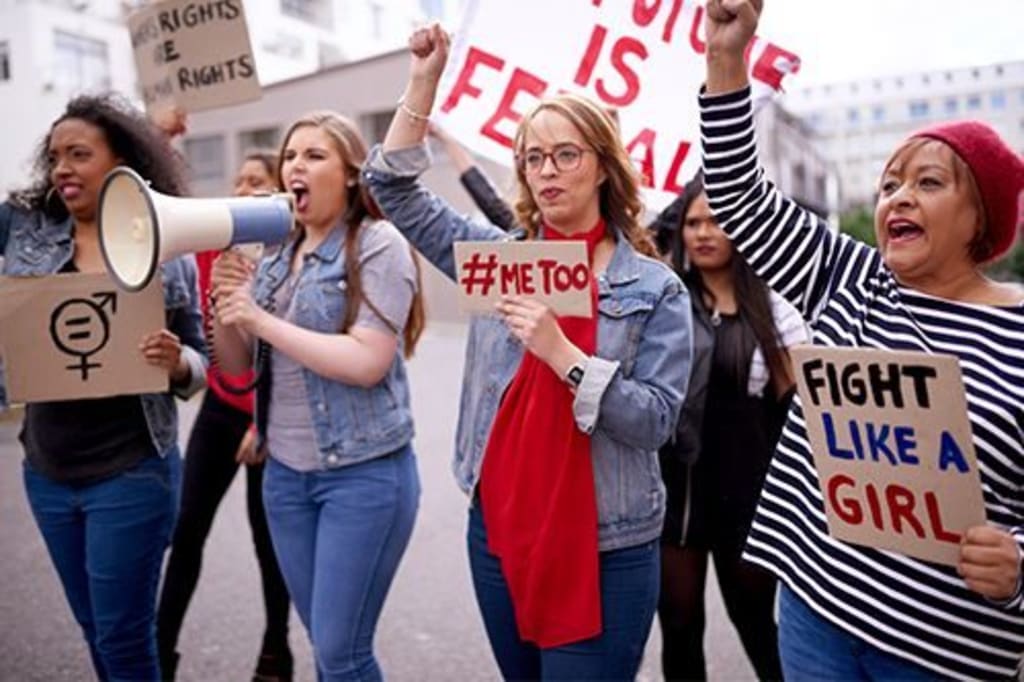The impact of social justice movements on individuals and communities
Social justice and activism

Social justice movements have a profound impact on individuals and communities. These movements seek to address systemic inequalities and injustices in society, and work towards creating a more just and equitable world. Here are some of the ways in which social justice movements can impact individuals and communities:
Empowerment: Social justice movements can empower individuals who have been marginalized or oppressed by society. By providing a platform for their voices to be heard and advocating for their rights, these movements can give individuals a sense of agency and power. This empowerment can help individuals to feel more confident, hopeful, and motivated to effect change in their lives and communities.
Increased Awareness: Social justice movements can raise awareness about issues of social justice, and help to educate individuals about the impact of systemic inequalities and injustices. This increased awareness can lead to greater empathy, understanding, and support for those who are affected by these issues. It can also lead to a greater understanding of one's own privilege and position in society, and encourage individuals to take action to address these issues.
Community Building: Social justice movements can bring together individuals who share common values and goals. This sense of community can help to foster a sense of belonging and connection, and provide support for individuals who may feel isolated or marginalized. Through community building, social justice movements can help to create a sense of solidarity and unity, which can be a powerful force for change.
Policy Change: Social justice movements can also have a significant impact on policy change. By advocating for changes in laws and policies that perpetuate systemic inequalities, these movements can help to create a more just and equitable society. This can include changes in areas such as criminal justice reform, healthcare, education, and employment. These changes can have a positive impact on individuals and communities who have been marginalized by these systems.
Healing: Social justice movements can also be a form of healing for individuals and communities who have been affected by systemic injustices. By acknowledging the harm that has been done and working to address it, these movements can help to promote healing and reconciliation. This can include initiatives such as reparations, truth and reconciliation processes, and other forms of restorative justice.
Social justice and activism are closely related concepts, with activism often being seen as a means of pursuing social justice. Social justice refers to the fair and just distribution of resources, opportunities, and rights within society, while activism is the action or activity aimed at promoting social or political change. Here are some key aspects of social justice and activism:
Social justice and activism
Intersectionality: Social justice and activism often involve an intersectional approach, which recognizes the multiple forms of oppression and marginalization that individuals and communities may face. This means recognizing that social justice issues are often interconnected, and that a focus on one issue (such as racism) may not fully address the issues faced by individuals and communities who also experience other forms of oppression (such as sexism, homophobia, or ableism).
Inclusivity: Effective social justice and activism require inclusivity, which means ensuring that the voices and experiences of all individuals and communities are heard and valued. This includes amplifying the voices of marginalized and underrepresented groups, and actively working to dismantle systems of oppression that may prevent certain groups from being fully included and represented.
Advocacy and Action: Social justice and activism involve advocacy and action, often focused on achieving policy change, as well as raising awareness and educating the public about social justice issues. This can include engaging in protests, rallies, and other forms of activism, as well as engaging in advocacy work with elected officials, community leaders, and other stakeholders.
Collaboration and Partnership: Effective social justice and activism require collaboration and partnership, both within and across communities. This means working with others who share similar goals and values, as well as being open to learning from different perspectives and experiences.
Perseverance: Social justice and activism often involve long-term and ongoing efforts, and may require perseverance in the face of resistance or setbacks. This means being committed to the cause, and recognizing that change may take time, but that progress is possible with sustained effort and action.
In conclusion, social justice and activism are essential for promoting a more just and equitable society. They involve an intersectional and inclusive approach, as well as advocacy, action, collaboration, and perseverance. By working together and taking action, we can address the systemic inequalities and injustices that exist within our society, and create a better future for all.





Comments
There are no comments for this story
Be the first to respond and start the conversation.